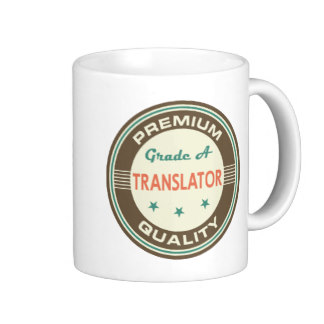Personality traits of a great translator
Medical Pharmaceutical Translations • May 30, 2016 12:00:00 AM

There are many translators out there. Some aren’t even human! Of course, that variety doesn’t mean that every translator works the same way or turns in work with the same level of quality. Whether you’re thinking about hiring a translator, or are considering becoming one, yourself, here are the essential characteristics you should look for (or possess):
— A thorough knowledge of the languages you’re working with. Whether they’re bilingual/multilingual from birth, or learned their non-native language(s) later, translators should have a passion for the languages they work with, and a solid educational background in all of them. That means a large vocabulary, and an excellent knowledge of grammar and idiomatic expressions, among other things.
— Intimate knowledge of the cultures associated with their languages. As we regularly discuss on this blog, a good translator has to know the history, politics, pop culture, customs, even details of daily life, that are behind the languages they’re working with. This will help them convey a text’s meaning in the fullest sense, so that not just words, but ideas and context can be translated, too.
Now that those two essentials are out of the way, what about personal characteristics? Translator Tess Whitty advises that a great translator should have:
– Curiosity – This means not only accepting, but being downright happy to learn new things for a translation job.
– Discipline. Translating is hard, tiring work. A translator has to stay motivated and make sure they turn in their work by deadline.
In an excellent essay, translator Sarah Alys Lindholm goes even deeper into the personality traits that make a great translator. She includes:
– Being able to focus and pay attention to even the smallest of details. A translator may be working on a long or complicated text, but they still have to keep in mind that every word, detail, and concept need to ring true in the language they’re being translated into. This may mean a twenty-minute search for the best replacement word, or some in-depth research to find an understandable equivalent to, or explanation for, a cultural expression or phenomenon.
– Respecting the source material. With this, Lindholm addresses an issue most translators (very much including me) have faced from time to time. There are texts that have errors or that could be improved, but you have to respect the original author’s voice or intention, and leave them as-is, no matter how tempting it might be to change things. As she writes, “the greatest translator is great because of his invisibility.”
There are also some skills a great translator should possess that may not be obvious at first:
– Knowing how to research. Translators will probably find themselves having to do a decent amount of research, from lexical, to contextual. This can take time, but it will be even longer if they don’t know where to find specific information in the first place. Being familiar with resources, both online, and in real life, is an immensely helpful skill.
– Knowing your limits. A translator should be able to know if they can do a job quickly, if they need more time, or if they can’t do it at all. For example, a general translator probably shouldn’t do a medical translating job, since they likely don’t have in-depth knowledge of medical terminology and practices.
Being a translator is about words and their meanings on many levels. You have to be committed to their work. You have to be disciplined. You have to be able to keep your own opinions aside and convey an author’s ideas and style, not your own. Find someone who can do all that, and you’re pretty much guaranteed to get excellent translations.
